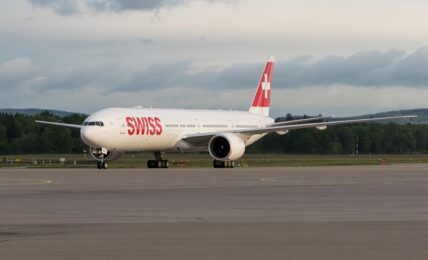Investment management firm Fidelity International announced today the launch of its new climate investing policy, along with goals to slash emissions in half in the company’s $787 billion portfolio, and to phase out thermal coal exposure.
According to Fidelity, the new policy aims to align the company’s active asset management strategy with a net zero future. Fidelity has already committed to reach net zero in its investment portfolio as a founding signatory of the Net Zero Asset Managers initiative, and the company also recently announced a target to reach net zero in its own operations by 2030.
To help guide the new policy, Fidelity introduced proprietary Climate Ratings, which will be used to assess the alignment of portfolio companies and investment prospects to a net zero pathway. Depending on their score, companies will be placed into one of five ‘buckets’, with those classified as achieving or enabling net zero or aligning to a net zero path categorized as eligible for a net zero portfolio, and others targeted for engagement, voting, and potentially divestment.
Jenn-Hui Tan, Global Head of Stewardship and Sustainable Investing, Fidelity International, said:
“As a responsible investor, we must understand the carbon footprint of the portfolios we manage for our clients and work with the companies we invest in to reduce emissions in alignment with global net zero targets.”
Fidelity outlined the actions it will take to achieve its net zero emissions portfolio goal, including further integrating climate change analysis into portfolio construction and issuer analysis, and investing in net zero issuers and climate solutions, along with stewardship efforts to engage with companies on climate standards, and voting against companies that do not meet the standards.
Earlier this year, Fidelity introduced its new engagement and voting policies, which included a climate policy with expectations for companies to manage climate change impacts and reduce greenhouse gas emissions, and advocating for disclosures from companies around emissions, targets, risk management and oversight. Today’s new climate investing policy provides further information on the company’s engagement efforts, which will target companies in high impact sectors to accelerate their transition pathways. Companies that do not demonstrate progress following engagement will be considered for divestment.
Tan said:
“While Fidelity remains committed to working with companies on their transition, we recognise that some activities and businesses are incompatible with a net-zero future. Divestment is a last resort, but it is the only outcome where companies are unable or unwilling to show progress.”
Fidelity’s engagement will focus initially on thermal coal production, which the company said represents the most significant opportunity to reduce carbon emissions over the next decade. The new climate policy envisions the company phasing out its exposure to the thermal coal sector in OECD countries by 2030 and by 2040 globally, aligning with the timeline set out by the IEA in order to achieve global efforts to limit climate change to 1.5 degrees.
Tan added:
“Fidelity invests in many of the world’s leading companies and we want to use our influence as active stewards of capital to help the world meet its climate goals. This long-term, engagement-led policy aims to hold businesses to account for their carbon footprint and ensure that transparent public markets are a powerful force for decarbonisation.”
Click here to view Fidelity International’s Climate Investing Policy.
The post Fidelity International to Halve Portfolio Emissions by 2030, Launches New Climate Investing Policy appeared first on ESG Today.



